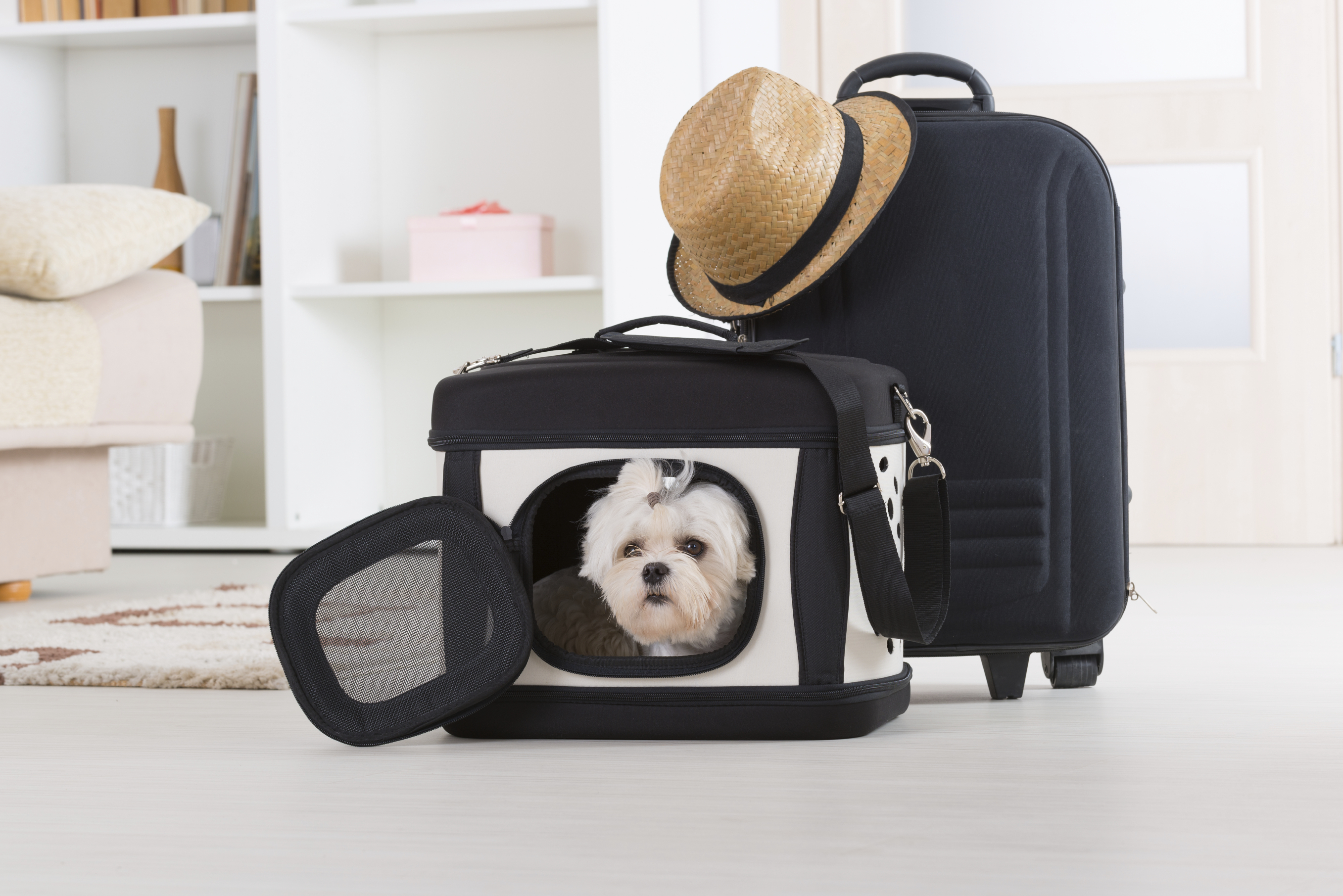On The Road Again: Traveling With A Pet
 Spring and summer is travel season for many families. Whether you plan on heading to the mountains, the beach, or just a quick trip to visit the Midwestern in-laws, travel brings with it the opportunity for adventure and the chance to break from the routine of daily life.
Spring and summer is travel season for many families. Whether you plan on heading to the mountains, the beach, or just a quick trip to visit the Midwestern in-laws, travel brings with it the opportunity for adventure and the chance to break from the routine of daily life.
For some pet owners, leaving a beloved pet behind when traveling is simply not an option. Because traveling with a pet brings with it a certain set of challenges, it’s a good idea to be as prepared as possible.
Considerations Prior To Traveling With A Pet
Take the following into consideration before you decide to bring your pet on vacation with you:
- Is my pet’s personality and temperament suitable for the chaos and unpredictability of travel?
- Are the accommodations pet-friendly?
- Do I have plans for pet-friendly activities? What will I do with my pet during those times when coming along on an activity is not possible?
- Will I have time to attend to all of my pet’s needs during the vacation?
- What will I do if my pet becomes ill or injured and needs medical attention?
Preparation Is Key To Fun And Safety
As with most areas of life, taking the time to properly plan and prepare for travel with pets will help you and your pet to feel more relaxed and secure. The following items should be included in your check-list:
Vaccinations – Make sure your pet is up to date on all required vaccinations before you leave. Ask your veterinarian if there any additional vaccinations you should consider, such as canine flu or Lyme disease.
Parasite preventives – Your pet’s monthly parasite preventives are crucial to his or her safety while traveling. Vector borne illnesses such as heartworm disease are a major problem in most areas of the country, and the only way to truly protect your pet is to make sure he or she is on a heartworm preventive, and most will also protect against other parasitic worms. Having your pet on a flea and tick preventive is another must.
Restraints – For their own safety, and yours, pets should not be allowed to roam freely in a vehicle. Research crates and car restraints before choosing the appropriate model for your pet. Allow your pet time prior to your trip to become accustomed your travel carrier or restraint. Give us a call with questions or for recommendations.
Travel gear – Bring along extra food, plenty of fresh water, bowls to eat and drink from, along with extra doses of any medication your pet is taking. Some comforts of home, such as your pet’s bed and favorite chews and toys will go a long way toward making him or her feel more comfortable in a new environment. Don’t forget to include protective rain gear, towels (always useful for drying and warming a wet pet) and a pet-specific first aid kit.
Health certificate – If you are planning travel to another country, please call Lone Tree Veterinary Medical Center as soon as you know your destination country, so we can help you get started on your pet’s health certificate requirements and meet any deadlines in time for your trip.
Don’t Forget!
At Lone Tree Veterinary Medical Center we know that our clients are responsible pet owners who love their furry friends like family. Because accidents can happen, even to the most responsible pet owner, we offer you the following reminders:
- Keep your pet’s collar with current IDs attached at all times. If your pet has not been microchipped yet or his or her microchip needs updating, attend to this prior to your departure.
- Never leave your pet alone in a parked car, even in the shade, even for just a minute. Temperatures inside a car can climb to dangerous levels in just a few minutes, even on cooler days.
- Do not leave your pet alone tethered to a tree, pole, fence or anything else, as your pet could become entangled and injured, stolen or worse.
If you have any questions or concerns regarding traveling with your pet, please give us a call and we will be happy to help.



